The Hands of Time – A Guide to Names of the most used Watch Hands
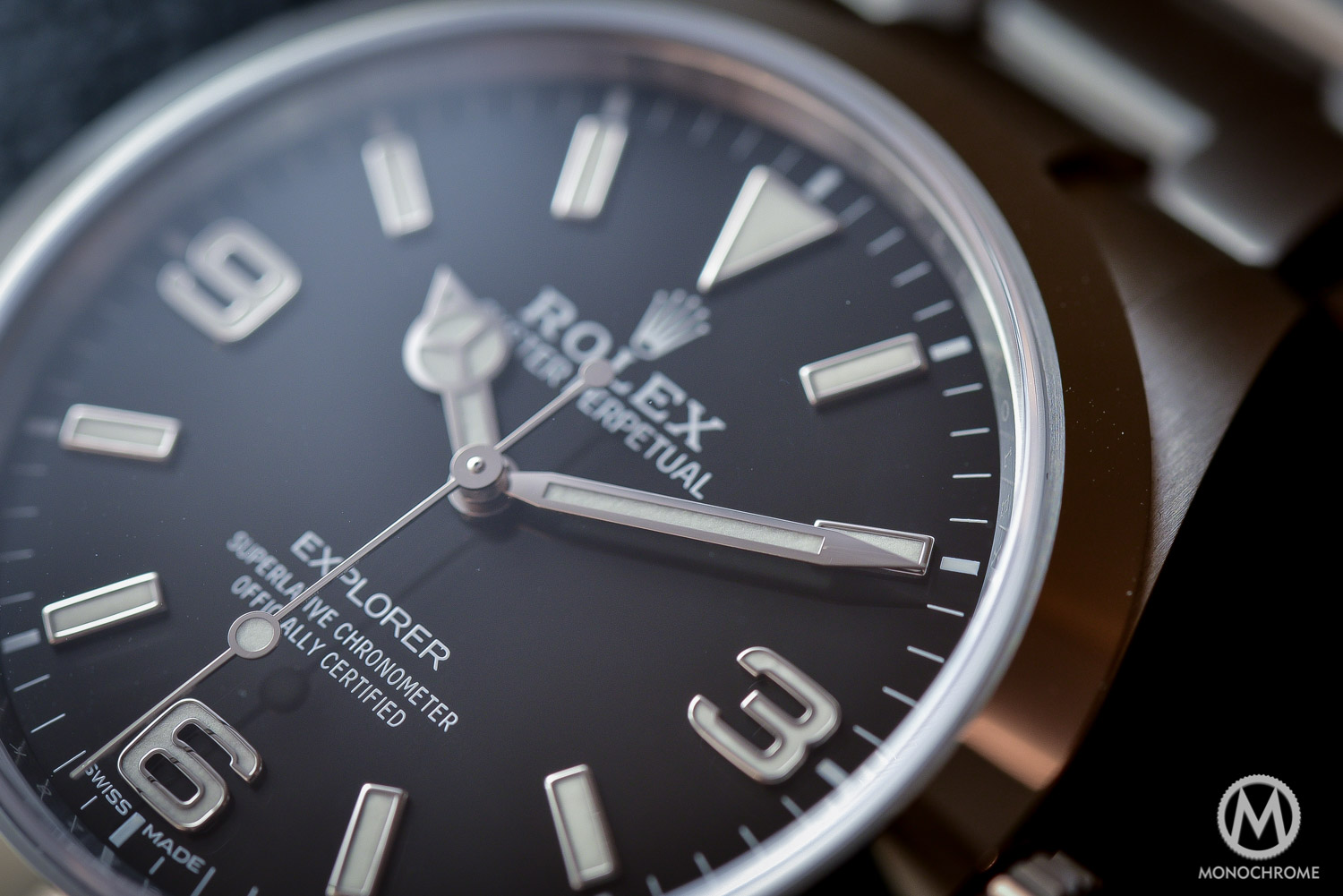
There are many ways to tell the time: digital watches show us the time using numbers, whereas the first mechanical clocks did not even have faces, and indicated time by chiming it. Hourglasses, candle clocks or clepsydras are other examples. And there’s a segment that we here at Monochrome, refer to as ‘Other Display‘, which include the URWERK’s MB&F’s and Ressence’s of this world. Still, most watches use hands on a dial to show us the hours and minutes, and as is their wont, watchmakers have displayed great creativity in the way they shape hands (for practical or more fancy purposes). These come in a variety of styles and are an integral part of a watch design. It would be tough to come up with an exhaustive list, but we’ll take a look at the most used hand designs from watches we have photographed over the past few months.
Alpha hands
Alpha type hands have a wide base and a narrow stem to connect them to the center of the dial. Example → Parmigiani Fleurier Tonda Metrographe
Arrow hands
Arrow hands feature an arrow-shaped pointer. These are often used for sports or technical watches. Example → Omega Seamaster Planet Ocean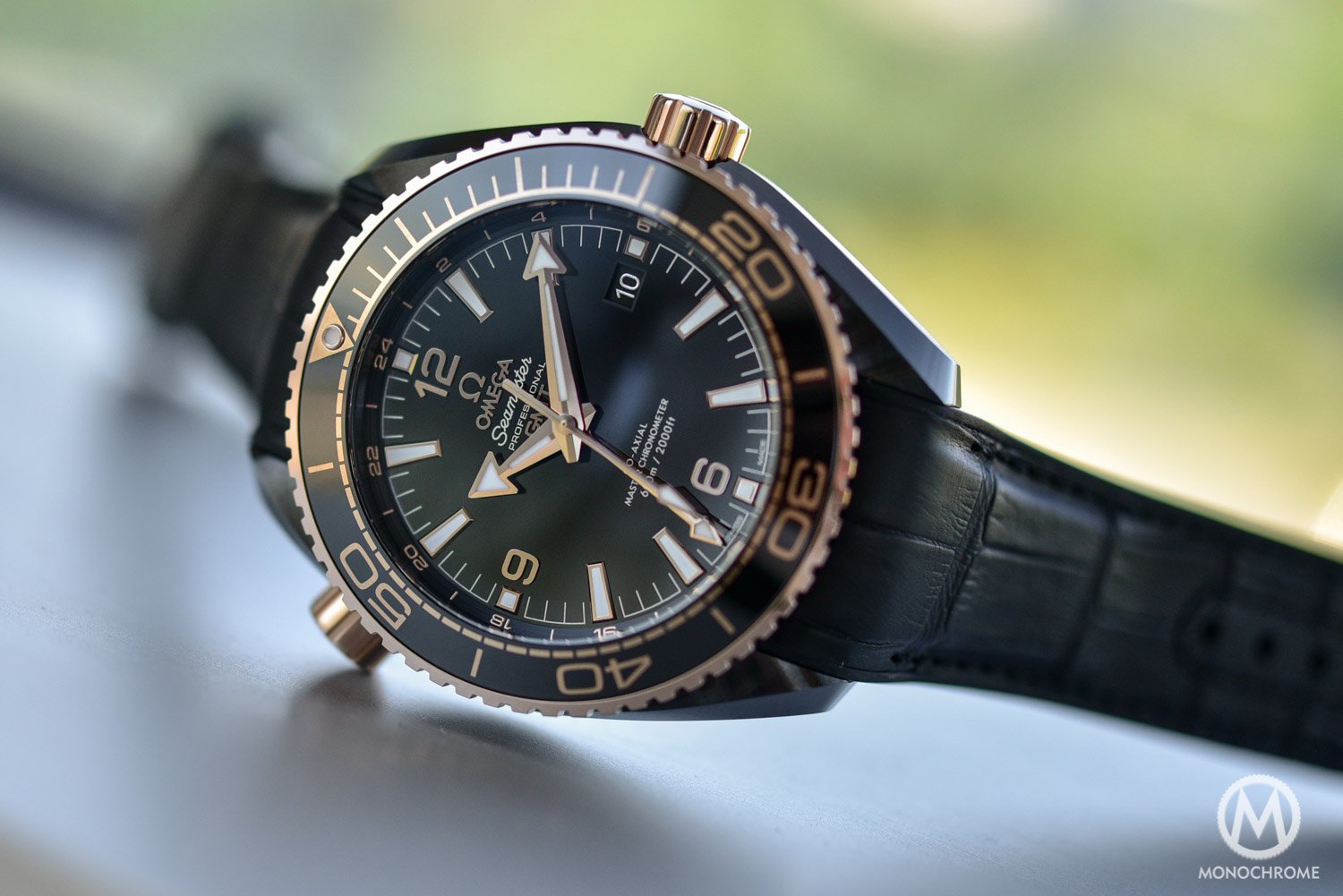
Baton hands
Baton hands, also called stick hands, are straight and elongated. Their minimalist lines lend themselves perfectly to dress watches. Example → Piaget Altiplano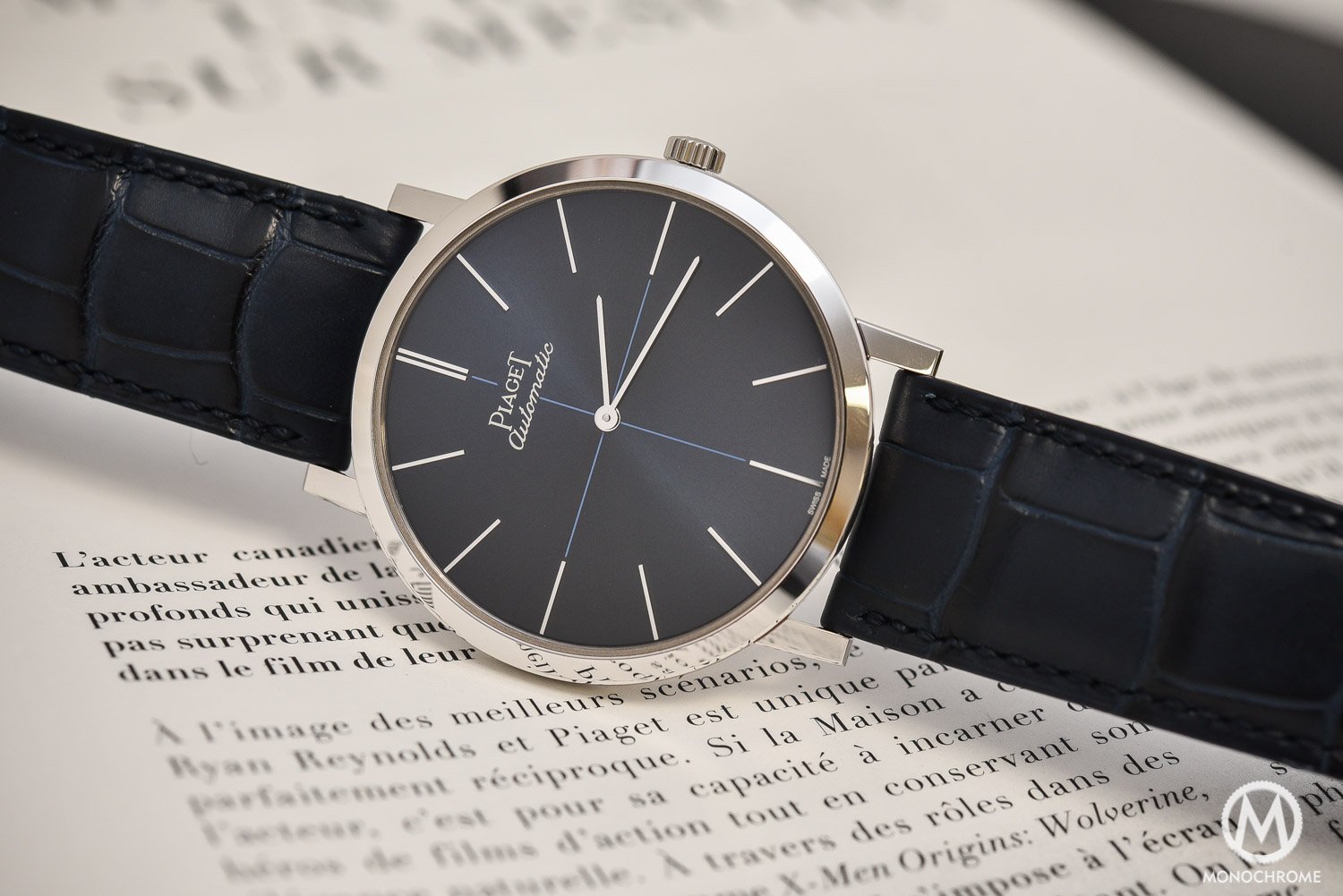
Breguet hands
Some brands will call these pudically ‘pomme’ (apple in French – because of their distinctive round hoop near the tip) but to us we think of them as Breguet hands, although Breguet has left such an indelible imprint on watch making to the point that many watch parts are best known by his name (numerals, overcoil, etc.) and of course the hands. Breguet style hands were designed in the late 18th century. Example → Breguet Classique 7147
Cathedral hands
Cathedral hands are a classic for military watches, but have been featured on a great variety of watches with a large hour hand and slender minute – the cathedral name is most likely inspired by the stained glass window design for the luminous material. Example → Montblanc 1858 chronograph tachymeter limited edition bronze
Dauphine hands
One of the most traditional and popular style of hands. Dauphine style hands have a triangle shape and are faceted. The etymology come from ‘dauphin’ the eldest son of the French king. Example → Carl F. Bucherer Manero Peripheral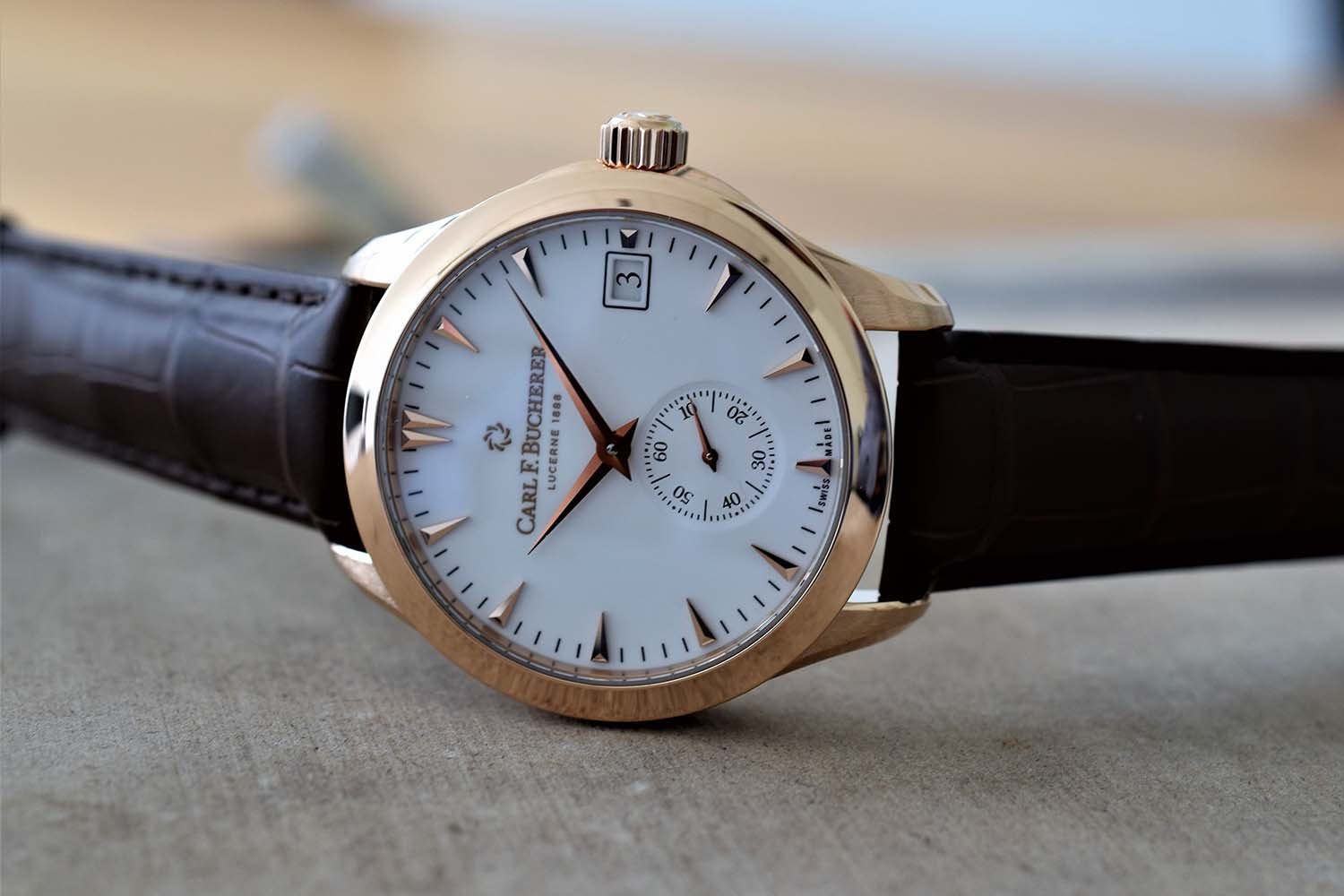
Fleur de Lys hands
What a lovely name, isn’t it. The Fleur de Lys hands are decorated with a stylized lily in a commonly used symbol in heraldry. It has appeared on countless European coats of arms, and it is known in particular as a symbol for the French Royalty. Example → Czapek Quai des Bergues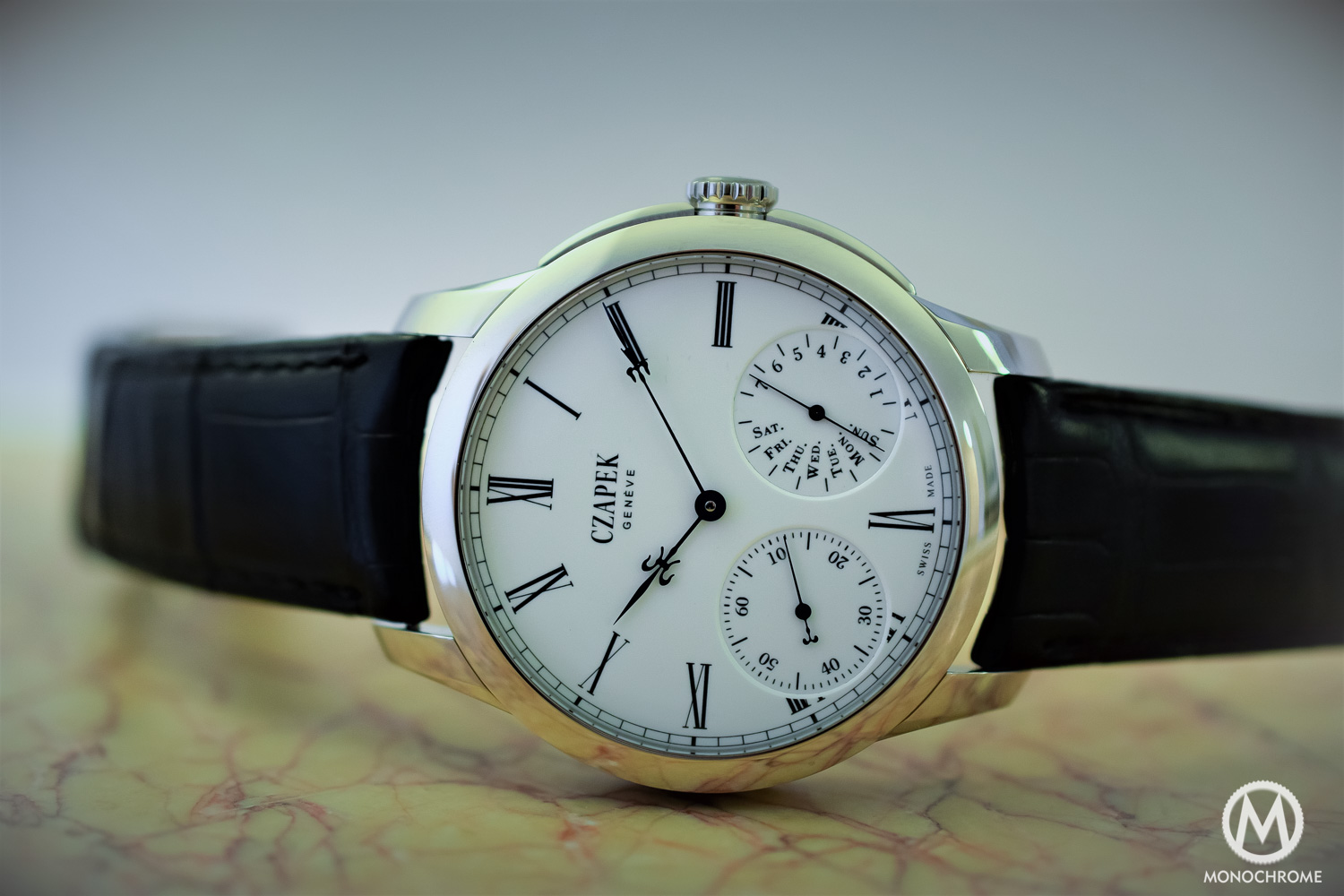
Lance hands
Lance hands are similar to ‘Alpha’ type but are generally thinner. Example → Schwarz Etienne Roma Power reserve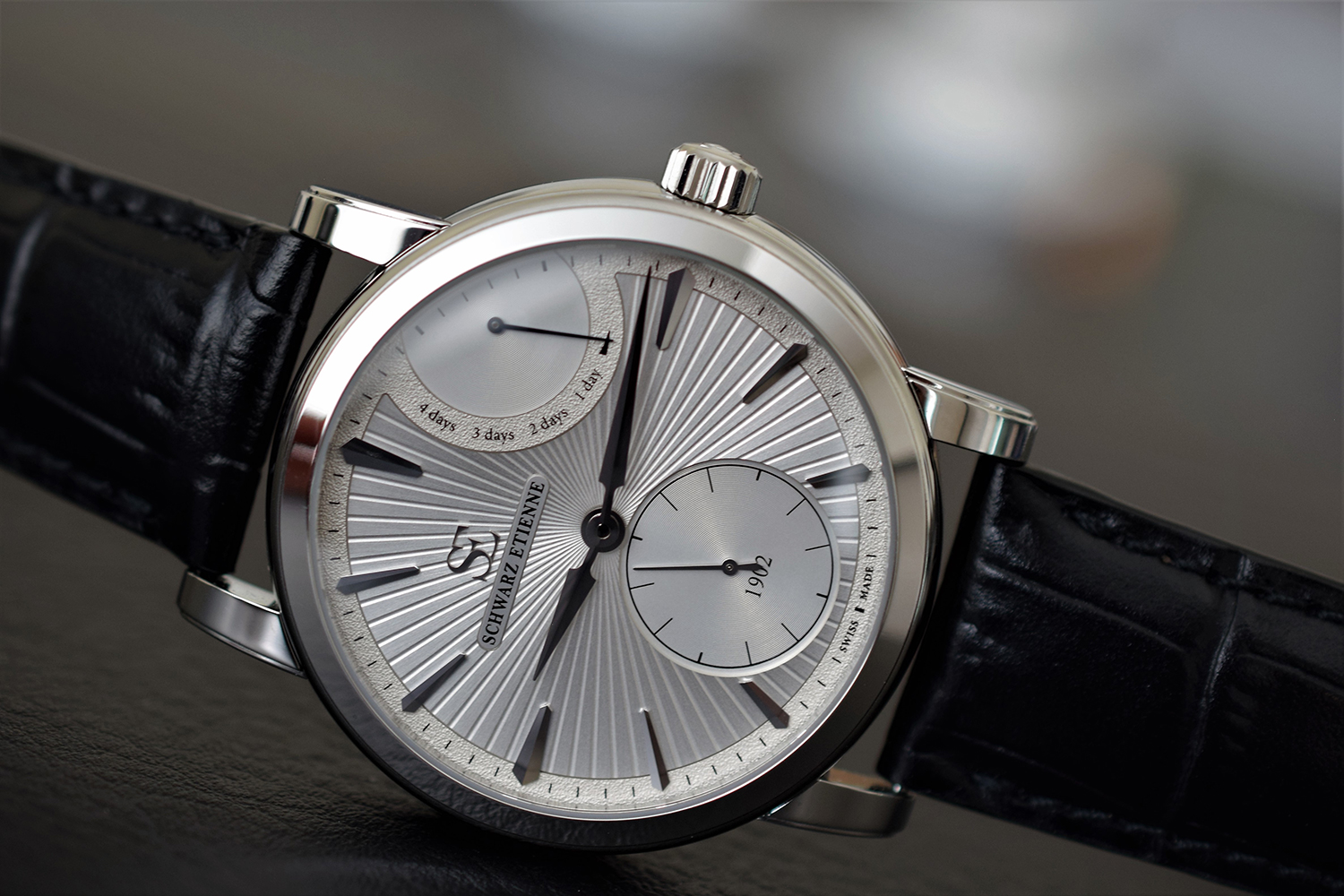
Leaf hands
Leaf or feuille in French – Wide in the middle and narrow at the end and base, leaf-shaped hands are a perfect match with classic, understated design. Example → H. Moser & Cie Endeavour Perpetual Calendar
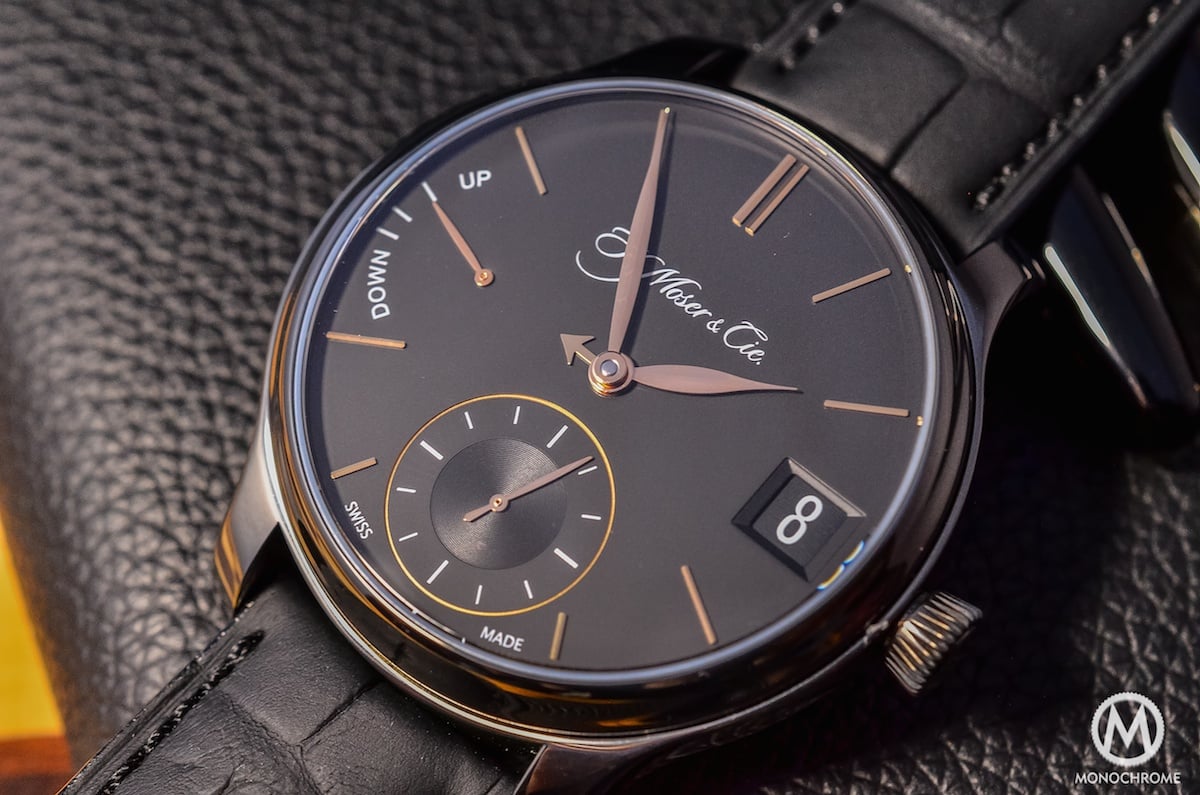
Mercedes hands
The name ‘Mercedes’ hands derive from the three-pointed star in the hour hand, that resembles the Mercedes Benz logo. Rolex never indicated why they created these hands, and if there’s a relation to the car brand, or other reasons for their choice. However it’s save to assume that the “Mercedes” star in the large open circle of the hour hand, makes a more stable area in which luminescent paint can be applied. Visually it also helps to distinguish the hour hand from the other hands in low-light settings. Example → Rolex Explorer I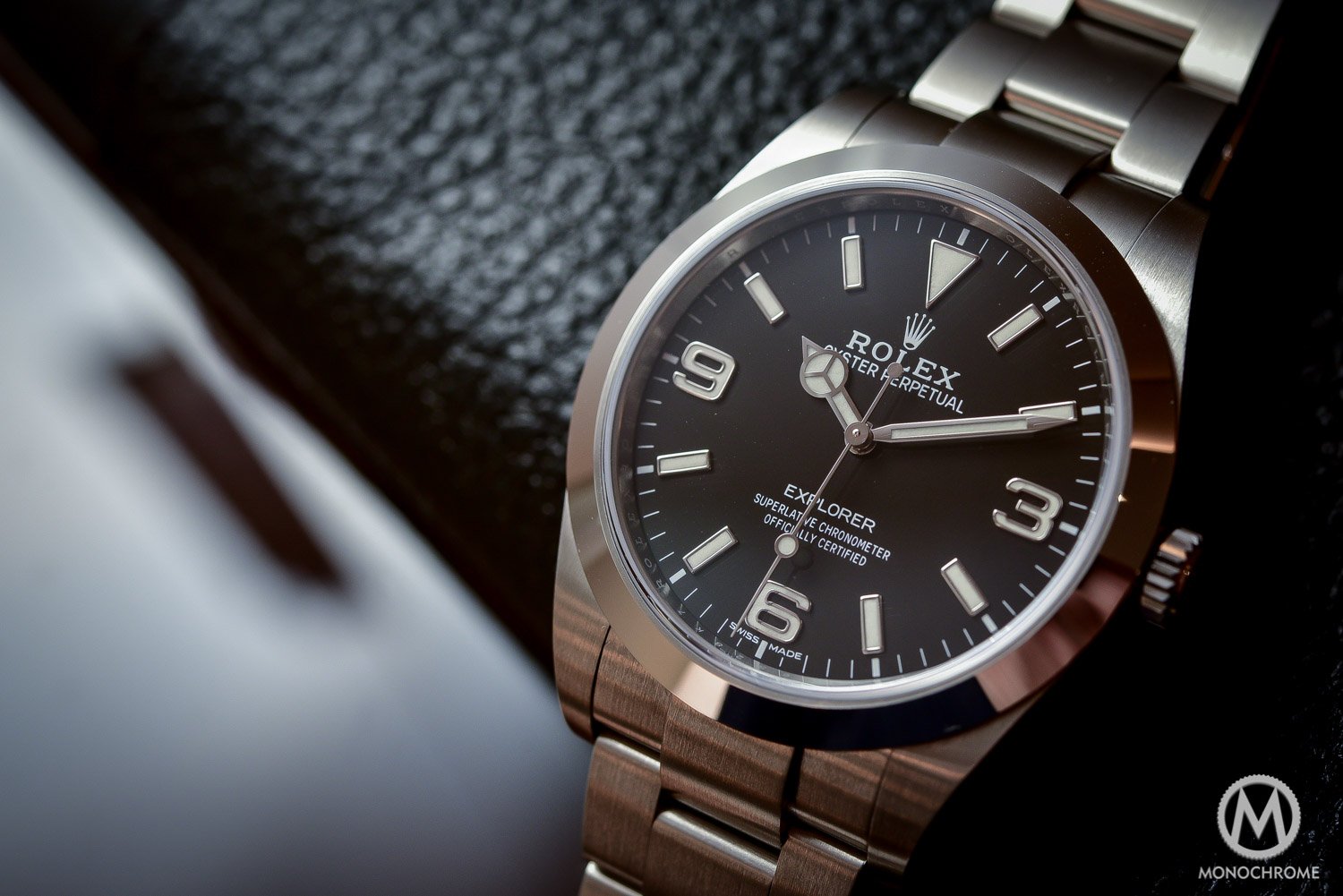
Plongeur Hands
‘Plongeur’ is the French for Diver. Plongeur hands usually refer to dive watch hands (specifically for Omega) with a straight hour hand and a more prominent and highly visible sword shaped minute hand. Orange is a popular color to highlight the all-important minute hand.Example → Omega Seamaster Ploprof 1200m
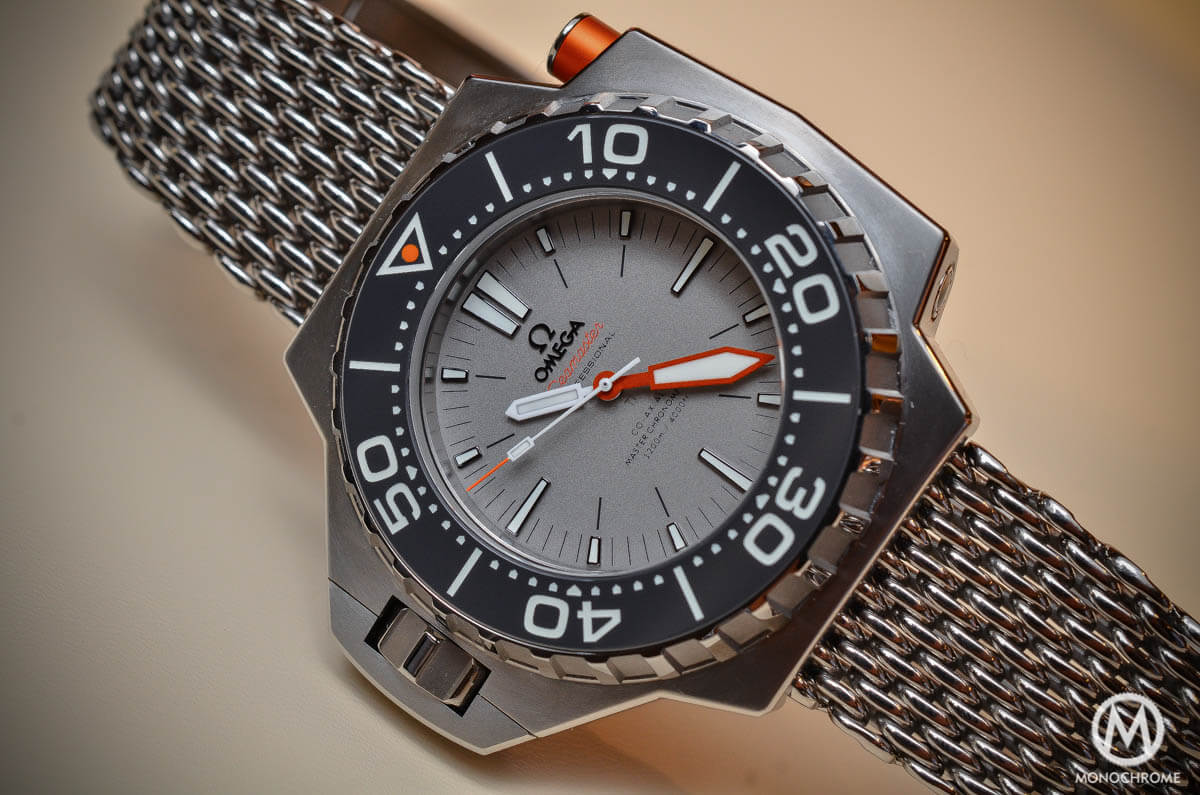
Syringe Hands
The elegant syringe hands also take their name from their shape. Their body is designed in the form of a barrel with a needle-like thin pointer. A perfect design to inject elegance into watches. Example → Patek Philippe Perpetual Calendar 5320G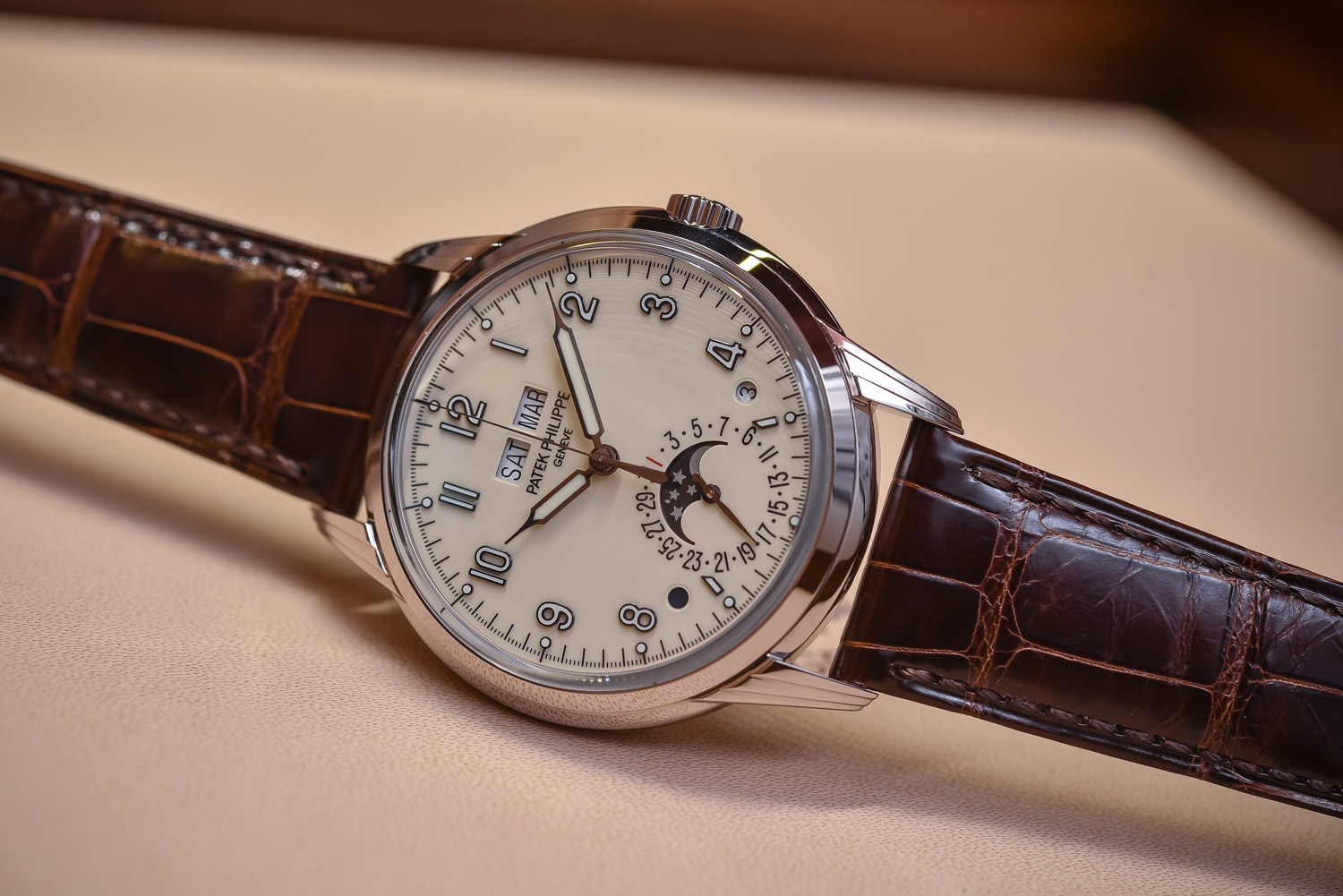
Snowflake hands
The snowflake hands are unique to the Tudor brand, and specifically some of their dive watches. According to the legacy these hands have been developed per request of the French navy, who wanted hands there were more legible for the divers. Example → Tudor Black Bay S&G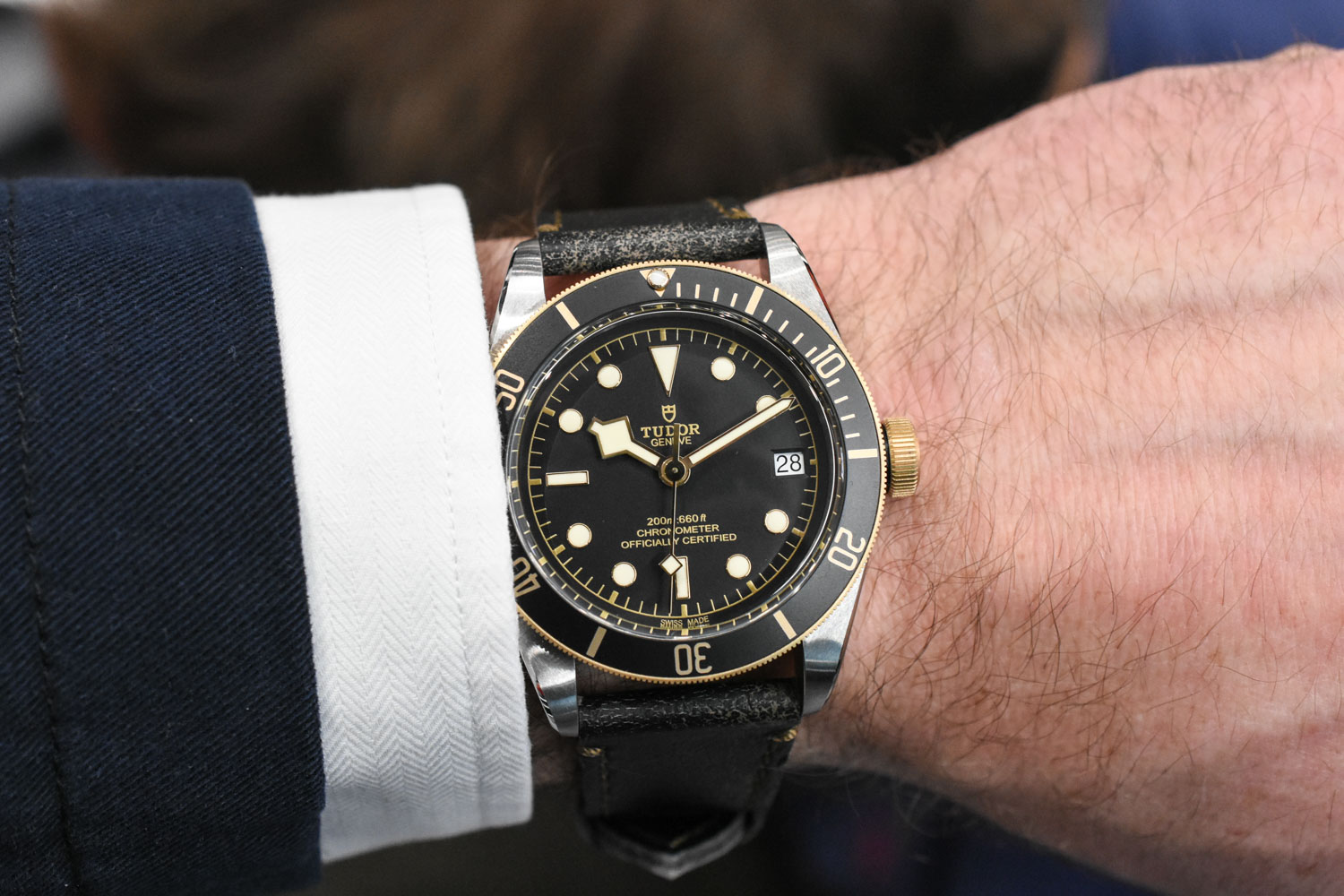
Spade hands
Spade hands are shaped like the playing card suit. The Ulysse Nardin below features spade and whip hands. Example → Ulysse Nardin Marine Torpilleur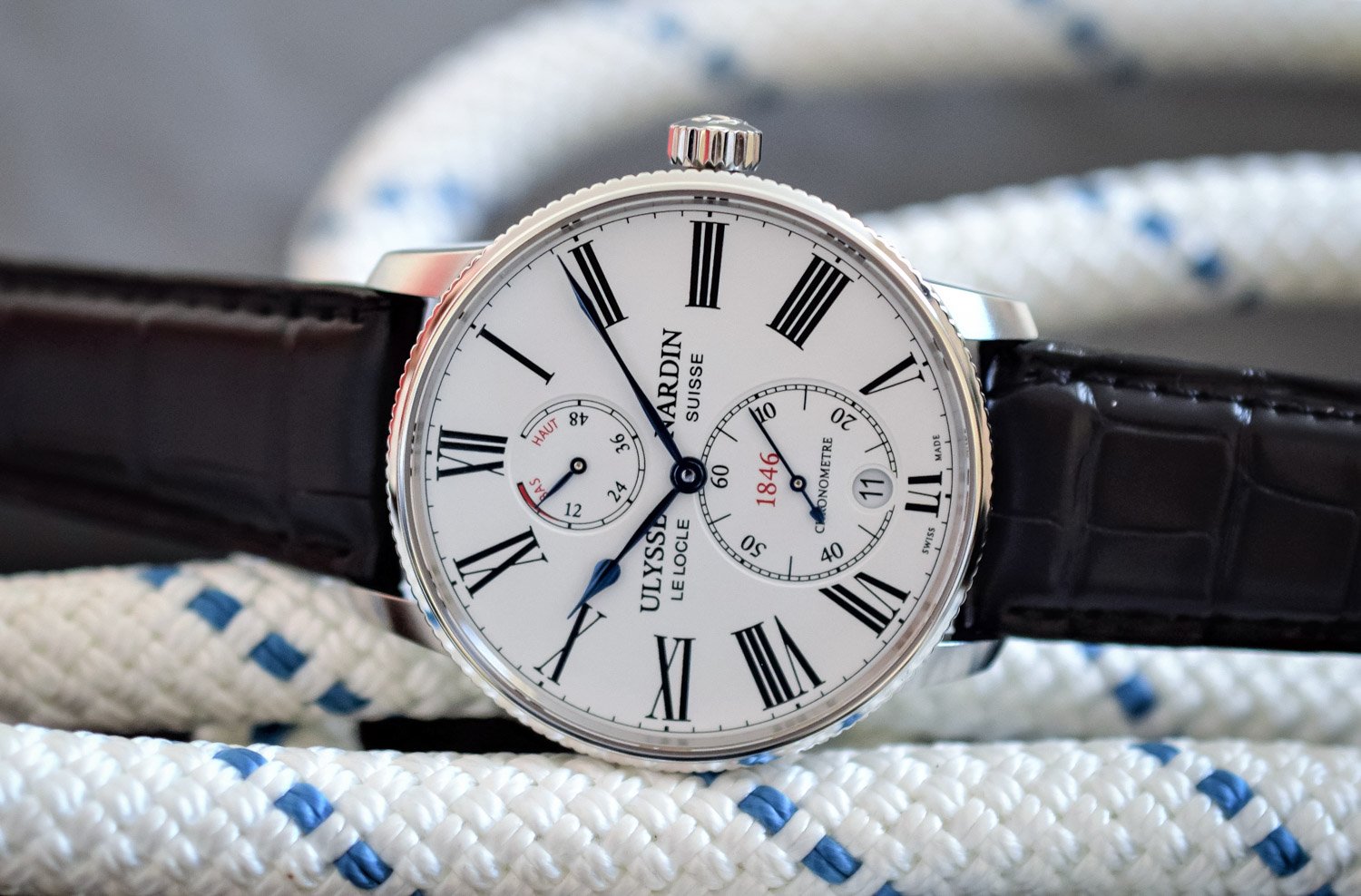
Sword hands
Sword hands or Glaive in French – as the name suggests, sword hands are shaped similar to a sword blade. Many Cartier watches provide examples of such hands. Example → Cartier Drive

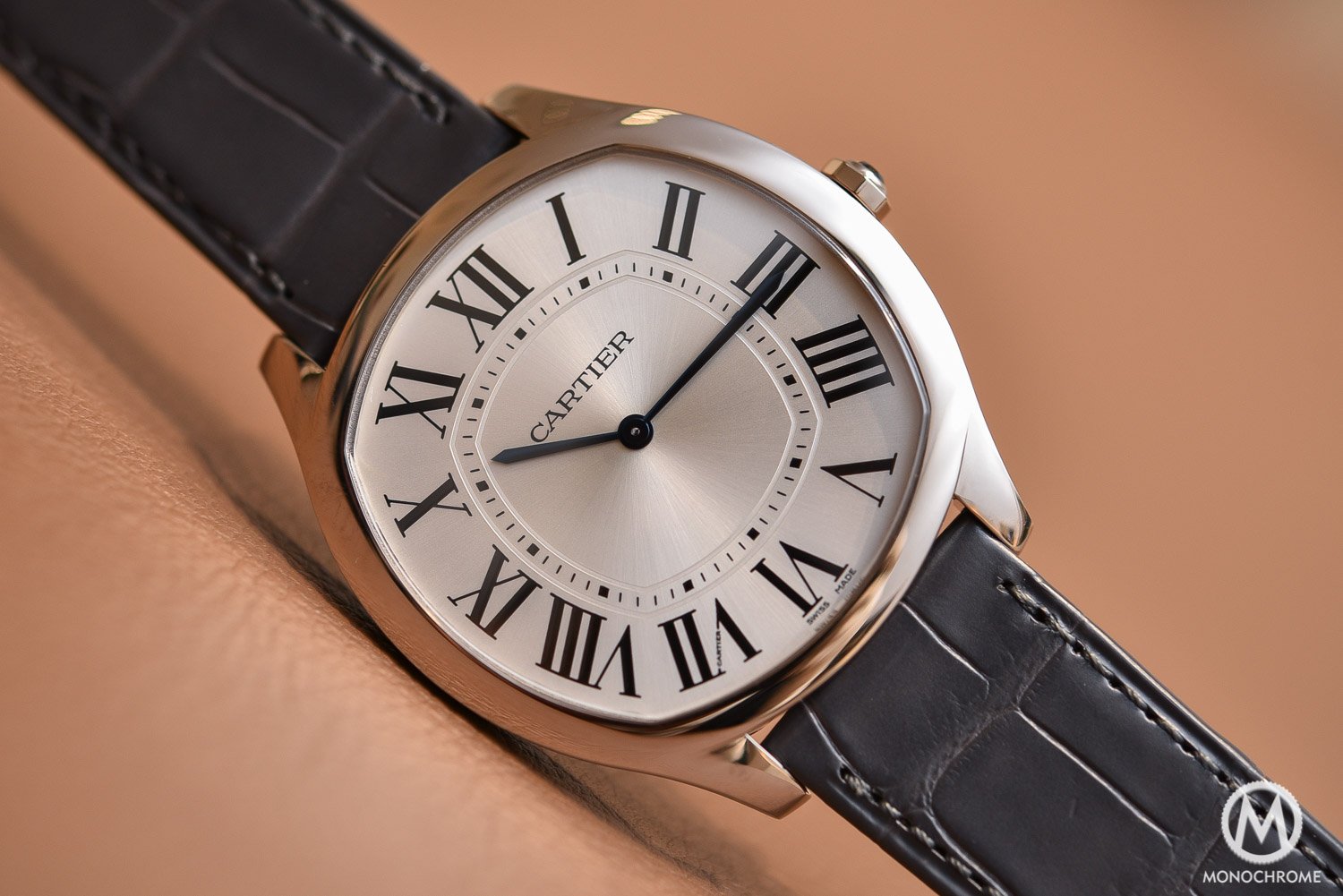
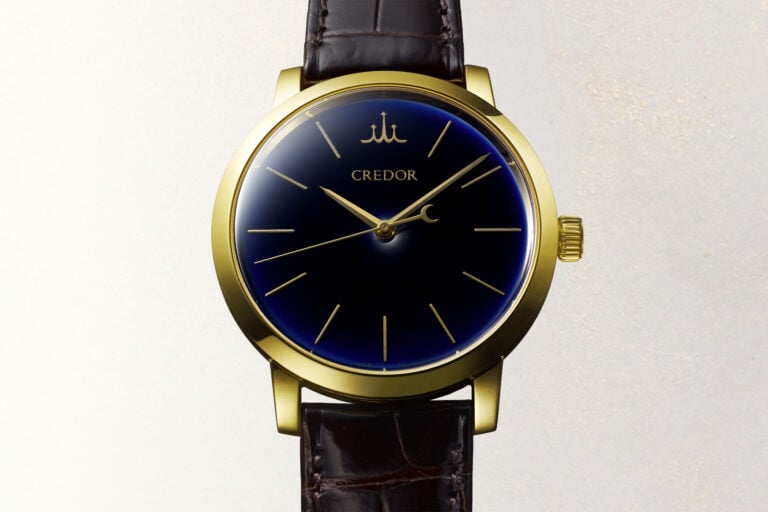
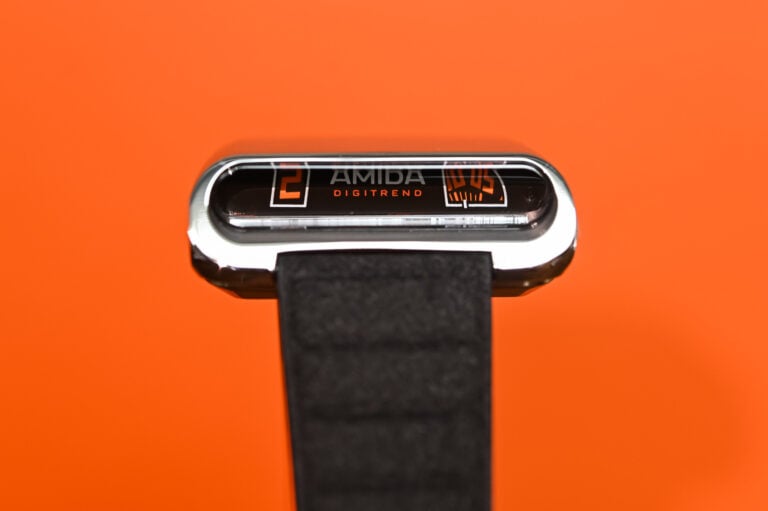
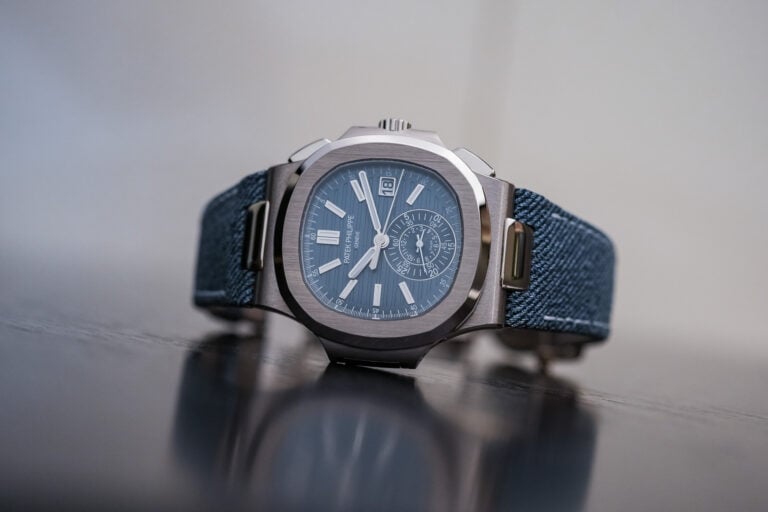
21 responses
No mention of syringe hands?
Thanks for the Guide. We should add the wonderful syringe hands.
You forgot “syringe hands”, e.g. those on many Sinns 😉
http://photos.imageevent.com/puma_cat/watches/websize/Sinn%20104%204.jpg
We hear you guys, however we did not have a watch with syringe hands in front of our camera in the past months… We’ll add them later, for a complete guide in our Technical Perspective series.
Best to call the so called Breguet hands Pomme . As this style of hand was actually the genius of Lepine. Continued repetition has reinforced the marketing.
And what about plongeur hands?
And also please add the asegai hands by Laurent Ferrier, and Morritz Grossmann. I call the larger version of Breguet style hands as used by Urban Jurgensen a Birds head.
Great article! Please also include Laurent Ferrier’s beautiful Assegai hands in your Technical Perspective guide 🙂
Sword hands as on a Seamaster?
Great article!
Try the 5320G for the Syringe hands… 😉
Syringe hands and plongeur hands have been added! Thanks for all feedback!
And alternative explanation for cathedral hands is that the style can be seen on some cathedral and church clocks. I would think that the Mercedes hands are just an attempt to modernize and simplify the cathedral hands.
THANK YOU for this comprehensive and informative list. A rare thing to see the important basics and so well described
It’s missing the Flieger hands.
I also LOVE Greubel Forsey’s hands. Would you classify them as Arrow hands with the stem open? Characteristically they’re quite different imo.
I’d classify them as Arrow hands, indeed. The Omega Seamaster Planet Ocean hands, shown here as Arrow hand example, are similar in shape.
What about the pagoda hands used on Seiko divers?
How about “F” hands (also called paddle hands) on Soviet watches like Vostok Amphbia? The hour hand is called an “F” hand because it resembles a cyrillic F.
Very interesting. I don’t know why. Daphne started it. I’m intrigued where and how names came to be. Other than from some version of Catholicism in thier Bible as God gave that to man. We all could use some French pronunciation lessons. We’we’, no, maybe!
Super cool! I have been trying to describe the hands for the clocks I build for a long time now. This is a really useful reference. Thanks very much!
What is a “Mercedes” hand called when the disc does NOT include a 3-point star in the interior?
@JackA – In this case, it’s kind of a lollipop hand… But not sure there’s really a name for that.